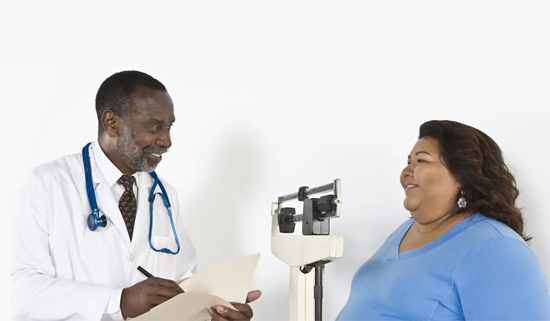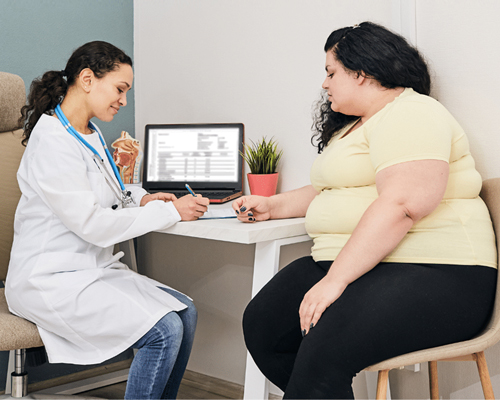Taking your health history
Your healthcare team may review your weight history, weight-loss efforts, physical activity, and exercise habits. You also may talk about your eating patterns and appetite control. Your healthcare professional may ask about other conditions you've had, medicines you take, your stress levels, and other issues about your health. They may also review your family's health history to see if you may be more likely to have certain conditions.
Checking for other health problems
If you have known health problems, your healthcare team will evaluate them. Your healthcare professional also will check for other possible health problems, such as high blood pressure, high cholesterol, underactive thyroid, liver problems, and diabetes.
Gathering this information will help you and your healthcare team choose the type of treatment that will work best for you.




